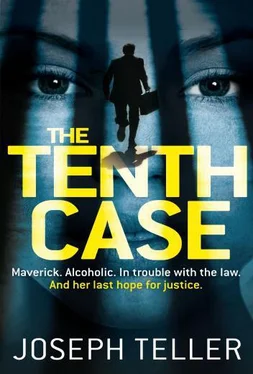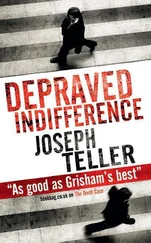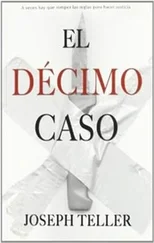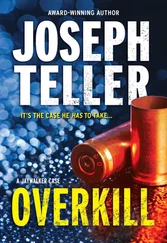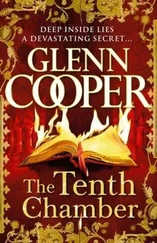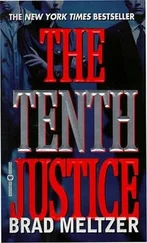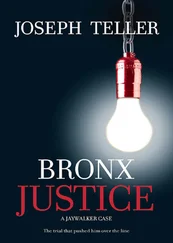Joseph Teller - The Tenth Case
Здесь есть возможность читать онлайн «Joseph Teller - The Tenth Case» — ознакомительный отрывок электронной книги совершенно бесплатно, а после прочтения отрывка купить полную версию. В некоторых случаях можно слушать аудио, скачать через торрент в формате fb2 и присутствует краткое содержание. Жанр: Криминальный детектив, на английском языке. Описание произведения, (предисловие) а так же отзывы посетителей доступны на портале библиотеки ЛибКат.
- Название:The Tenth Case
- Автор:
- Жанр:
- Год:неизвестен
- ISBN:нет данных
- Рейтинг книги:3 / 5. Голосов: 1
-
Избранное:Добавить в избранное
- Отзывы:
-
Ваша оценка:
- 60
- 1
- 2
- 3
- 4
- 5
The Tenth Case: краткое содержание, описание и аннотация
Предлагаем к чтению аннотацию, описание, краткое содержание или предисловие (зависит от того, что написал сам автор книги «The Tenth Case»). Если вы не нашли необходимую информацию о книге — напишите в комментариях, мы постараемся отыскать её.
The Tenth Case — читать онлайн ознакомительный отрывок
Ниже представлен текст книги, разбитый по страницам. Система сохранения места последней прочитанной страницы, позволяет с удобством читать онлайн бесплатно книгу «The Tenth Case», без необходимости каждый раз заново искать на чём Вы остановились. Поставьте закладку, и сможете в любой момент перейти на страницу, на которой закончили чтение.
Интервал:
Закладка:
DET. MALONEY: No.
MR. JAYWALKER: If you'd known those things, would you have fingerprinted the super, as well?
MR. BURKE: Objection, calls for specula tion.
THE COURT: Sustained.
MR. JAYWALKER: Would it have been good po lice practice to fingerprint everyone who'd been in the apartment that day?
MR. BURKE: Objection.
THE COURT: Overruled.
DET. MALONEY: I guess so.
MR. JAYWALKER: You guess so? Or is the answer, "Yes, it would have been"?
DET. MALONEY: Yes, it would have been.
It wasn't much, but it was as good a place as any to quit. When it came time for deliberations, juries often requested read-backs of various witnesses' testimony, and Jaywalker liked to end on a positive note whenever he could. He'd even toyed with the idea of asking Maloney if she'd bothered to fingerprint the co-op board president, or Barry Tannen baum's accountant or his recently fired lawyer, knowing he would get a "Who?" from the witness. But he knew that line of questioning would also get him a series of objections from Burke and likely an adverse ruling from the judge, the combination of which would serve to dilute any gains the questions might earn him. Once again, less was more.
Next Burke called Roger Ramseyer, a detective assigned to the Criminal Investigation Division. Ramseyer had received a number of items brought in by Detective Ma loney, including latent prints, hairs and fibers. He'd sub sequently been supplied with fingerprint cards and sample hairs representing individuals who'd been known to have been in Barry Tannenbaum's apartment the day his body was discovered. He referred to the first group of items as "questioned" and the second group as "known." Burke took him carefully through each item.
With respect to the latent, or questioned, fingerprints found in the apartment, Ramseyer was able to make positive comparisons to the known prints of Barry Tannenbaum, Police Officer Susan Connolly and Samara Tannenbaum. Specifically, Samara's prints had been found on the interior doorknob to the apartment, as well as the exterior doorknob and lock plate, two of the Chinese food containers, and on two glasses, one empty, the other partially filled with water. Two hairs removed from Barry Tannenbaum's sweater proved to be of human origin and microscopically indistin guishable from known hair samples supplied by Samara. And one red silk thread, also lifted from Barry's sweater, was similarly indistinguishable from the red threads of a multicolored silk woman's blouse, separately delivered to Ramseyer by a different detective, two days later.
Jaywalker started to rise to object, but decided against it. The detective who'd brought the blouse in hadn't testified yet, so technically there'd been no proper foundation laid as to where the blouse had been found. But the judge would no doubt either take Ramseyer's testimony about the threads subject to later connection or make Burke recall his witness later on in his case. Either way, Jaywalker's victory would be short-lived, and in the long run it would only place more emphasis on the testimony. Better to let it in unchallenged. Trying to keep it out would only highlight it for the jury.
So, too, with the reliability of hair and fiber compari sons. Jaywalker had tried enough cases and done enough reading to know that the science behind such testimony was shaky, particularly when judged by DNA standards, or even against fingerprint research. But he had little interest in showing off, and none in disputing Ramseyer's conclusions. His defense, he'd already told the jury, was that his client was being framed. She'd been in Barry's apartment on the evening of his murder, and she was going to testify to as much. It was only to be expected that her fingerprints would be found there, on the food containers she ate from, the glass she drank from, and the doorknob she turned to let herself out. So, too, her hairs, and even a fiber from her clothing. Either those items had ended up on Barry's sweater naturally or they'd been planted there. No mileage was to be gained by arguing with Ramseyer that the scientific basis for his findings might be dubious.
So when Burke finished with the witness, Jaywalker had only a few questions for him.
MR. JAYWALKER: Detective Ramseyer, did you end up with any latent prints that you still would have to classify as "unknown"?
DET. RAMSEYER: Yes.
MR. JAYWALKER: How many?
DET. RAMSEYER: May I review my notes?
MR. JAYWALKER: By all means. In fact, why don't you turn to the top of page four of your report.
DET. RAMSEYER: Thank you. Yes, I was left with six unknown prints, corre sponding to four individuals.
Jaywalker asked him the same question with respect to hairs and fibers. The detective answered that he'd been left with four unknown hairs, belonging to three individuals, and three unknown fibers, each one indistinguishable from the others.
MR. JAYWALKER: So you ended up knowing for a fact that at least four additional individuals left their fingerprints in the apartment. And three or four individuals, perhaps the same ones, perhaps not, left human hairs or fibers on the victim's body or cloth ing. Is that correct?
DET. RAMSEYER: That's correct.
MR. JAYWALKER: And yet you have absolutely no way of telling us who those people were?
DET. RAMSEYER: Correct.
MR. JAYWALKER: Tell me, detective. Were you ever supplied known finger prints, hairs or fibers corre sponding to one Anthony Mazzini?
DET. RAMSEYER: No, sir.
MR. JAYWALKER: Corresponding to one Alan Manheim?
DET. RAMSEYER: No, sir.
MR. JAYWALKER: To one William Smythe?
DET. RAMSEYER: No.
MR. JAYWALKER: To one Kenneth Redding?
DET. RAMSEYER: No.
MR. JAYWALKER: Thank you.
It was after four-thirty, and Jaywalker guessed that Judge Sobel would adjourn for the day. But Burke indi cated at the bench that he had a short witness he'd like to get in before they broke.
"Who is he?" the judge asked.
"She," said Burke. "The victim's sister."
"Body ID?" Jaywalker wanted to know.
Burke nodded.
"I'll stipulate," Jaywalker offered. He was ready to concede that it was in fact Barry Tannenbaum who'd been murdered, and the last thing he wanted was a sobbing relative on the stand, particularly at the end of the day.
"No, thanks," said Burke, who had the right to refuse Jaywalker's offer.
"Keep it brief," said the judge.
As soon as they'd returned to their tables, Burke called Loretta Tannenbaum Frasier. A stooped-over woman was led into the courtroom. By Jaywalker's estimate, she couldn't have been five feet tall, even in shoes. A short witness, indeed.
As soon as she'd been sworn in and had identified her self as the victim's sister, Jaywalker stood up, the judge's ruling notwithstanding. "We're quite willing to concede that it was indeed her bother who was murdered," he said. "If that's what calling this witness is all about."
"You may proceed, Mr. Burke," said Judge Sobel, as annoyed at Jaywalker's theatrics as Jaywalker was at Burke's.
With a shrug that would have done Samara proud, Jay walker sat down. But he'd made his point. As early as jury selection, one of the things he'd warned the jurors about was that the prosecution might bring in a grieving family member to stir their sympathies. What's more, he would remind them of this stunt in his summation. But for the moment, all he could do was feel sorry for this poor little woman whose only brother had been stabbed to death.
Just as the jurors were no doubt doing.
Then again, had Jaywalker been in Tom Burke's shoes, he would have done the same thing. Hell, he would have brought in a dozen family members, each one of them sobbing more pitifully than the previous one.
To his credit, Burke got to the point with Mrs. Frasier and didn't overdo things. When Jaywalker indicated he had no cross-examination, they broke for the day.
Читать дальшеИнтервал:
Закладка:
Похожие книги на «The Tenth Case»
Представляем Вашему вниманию похожие книги на «The Tenth Case» списком для выбора. Мы отобрали схожую по названию и смыслу литературу в надежде предоставить читателям больше вариантов отыскать новые, интересные, ещё непрочитанные произведения.
Обсуждение, отзывы о книге «The Tenth Case» и просто собственные мнения читателей. Оставьте ваши комментарии, напишите, что Вы думаете о произведении, его смысле или главных героях. Укажите что конкретно понравилось, а что нет, и почему Вы так считаете.
